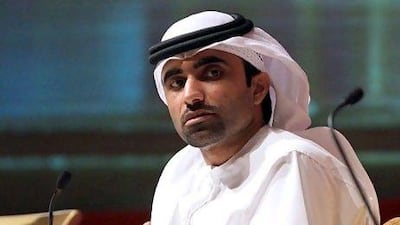Singapore, New Zealand, Norway and Ireland have relatively small populations, but each is known for its big business ambitions.
Abu Dhabi Model Economies: More on the 2030 vision
Abu Dhabi's vision of the future is well on the road to reality Entrepreneurism, education, innovation and diversification lie at the root of the capital's Economic Vision 2030. Read article
Capital's overseas inspiration is brought out closer to home The National's special series on the Abu Dhabi Economic Vision 2030 examines the tourism industry within the capital. Read article
The plan with broad appeal for Abu Dhabi The National's special series on the Abu Dhabi Economic Vision 2030 examines how the capital is trying to grow the number of small and medium-sized firms here. read article
Diversification is an important plank in the long-term outlook The National's special series on the Abu Dhabi Economic Vision 2030 looks at trade with the capital. read article
The four countries were used as models during the creation and initial implementation of the Abu Dhabi Economic Vision 2030.
As the UAE's capital aims to diversify its economy away from a dependence on oil, it is using the stronger aspects of those four economies to benchmark its own success. It could also learn from the challenges such countries have recently faced, experts say.
In a five-part series starting today, The National finds that different organisations within the Emirates have responded to the 2030 vision with educational initiatives, public-private partnerships and changing corporate strategies that all aim to diversify the economy away from oil.
In the next four parts of the series, The National visits each of the four countries the capital has considered and takes an in-depth look at specific sectors of interest to Abu Dhabi.
Norway, which is also dependent on oil, was selected for the way it invests revenue derived from crude to diversify its economy while maintaining disciplined fiscal policies.
Singapore was examined for its ability to diversify economically, although as a financial and commercial hub in South East Asia that does not have the benefits of oil reserves.
Meanwhile, officials in New Zealand have hosted delegations from Abu Dhabi and have shared insights on creating more small to medium-sized businesses, some of which have been hit hard by major earthquakes over the past year.
Many companies in Ireland, too, have faced hard times as the country's economy continues to struggle.
The country was included, however, for its success in developing a diversified knowledge-based economy and for its experience in attracting foreign investment.
Many hurdles remain to be cleared before Abu Dhabi can achieve its goals, although it has already begun broadening its tourism sector and trying to boost the number of Emirati entrepreneurs and small to medium-sized businesses in the region.
Using other countries as benchmarks has helped, too, officials say.
"My team has looked at [entrepreneurship] programmes from different areas," said Fahad Saeed Al Raqbani, the director general of the Abu Dhabi Council for Economic Development. He also helps oversee the Akoun programme for fostering Emirati entrepreneurs.
"They have seen what has come up [in other] countries and put together a programme that is very suitable for us in Abu Dhabi," he said.
2030 series part one, b6-b7

